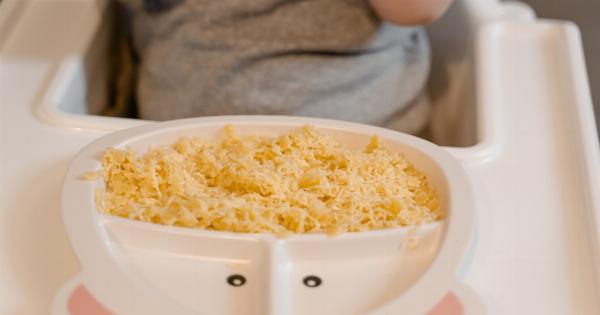Maternal nutrition plays a vital role in fetal growth and development. The nutrients that a mother consumes during pregnancy have a direct impact on the health and wellbeing of her child.
Poor maternal nutrition can lead to a range of negative outcomes for the baby, including low birth weight, impaired growth, and developmental delays. In this article, we will explore the effects of maternal nutrition on fetal growth and development in more detail.
Nutrients needed for fetal growth and development
During pregnancy, the mother’s body undergoes a series of changes to support the growth and development of the fetus. This requires an increased intake of certain nutrients to meet the demands of the growing baby.
Some of the key nutrients required for fetal growth and development include:.
- Protein
- Folate
- Iron
- Calcium
- Vitamin D
- Omega-3 fatty acids
Each of these nutrients plays a critical role in fetal development. For example, protein is essential for the development of the baby’s organs, muscles, and tissues.
Folate is important for the development of the brain and nervous system, while iron is necessary for the production of red blood cells and oxygen transport. Calcium is needed for the formation of strong bones and teeth, and vitamin D helps the body absorb calcium. Omega-3 fatty acids are critical for the development of the brain and eyes.
Effects of poor maternal nutrition on fetal growth and development
If a mother does not consume enough of these essential nutrients during pregnancy, it can have a range of negative effects on fetal growth and development. Some of the most common problems associated with poor maternal nutrition include:.
- Low birth weight
- Small for gestational age
- Preterm birth
- Neural tube defects
- Impaired growth and development
Low birth weight is a particular concern as it increases the risk of the baby developing a range of health problems later in life, including diabetes, cardiovascular disease, and obesity.
It can also lead to developmental delays and cognitive impairment.
The importance of a balanced diet during pregnancy
To ensure the healthy growth and development of the fetus, it is important for expectant mothers to consume a balanced diet that provides all of the essential nutrients required.
This means eating a variety of foods from each of the food groups, including:.
- Fruits and vegetables
- Whole grains
- Lean protein sources
- Dairy products or dairy alternatives
- Healthy fats
In addition to a balanced diet, expectant mothers should also take a prenatal vitamin to help ensure they are getting all of the essential nutrients required.
Conclusion
In conclusion, maternal nutrition plays a critical role in fetal growth and development. Poor maternal nutrition can lead to a range of negative outcomes for the baby, including low birth weight, impaired growth, and developmental delays.
To ensure the healthy growth and development of the fetus, it is important for expectant mothers to consume a balanced diet that provides all of the essential nutrients required. By doing so, mothers can help give their baby the best possible start in life.































